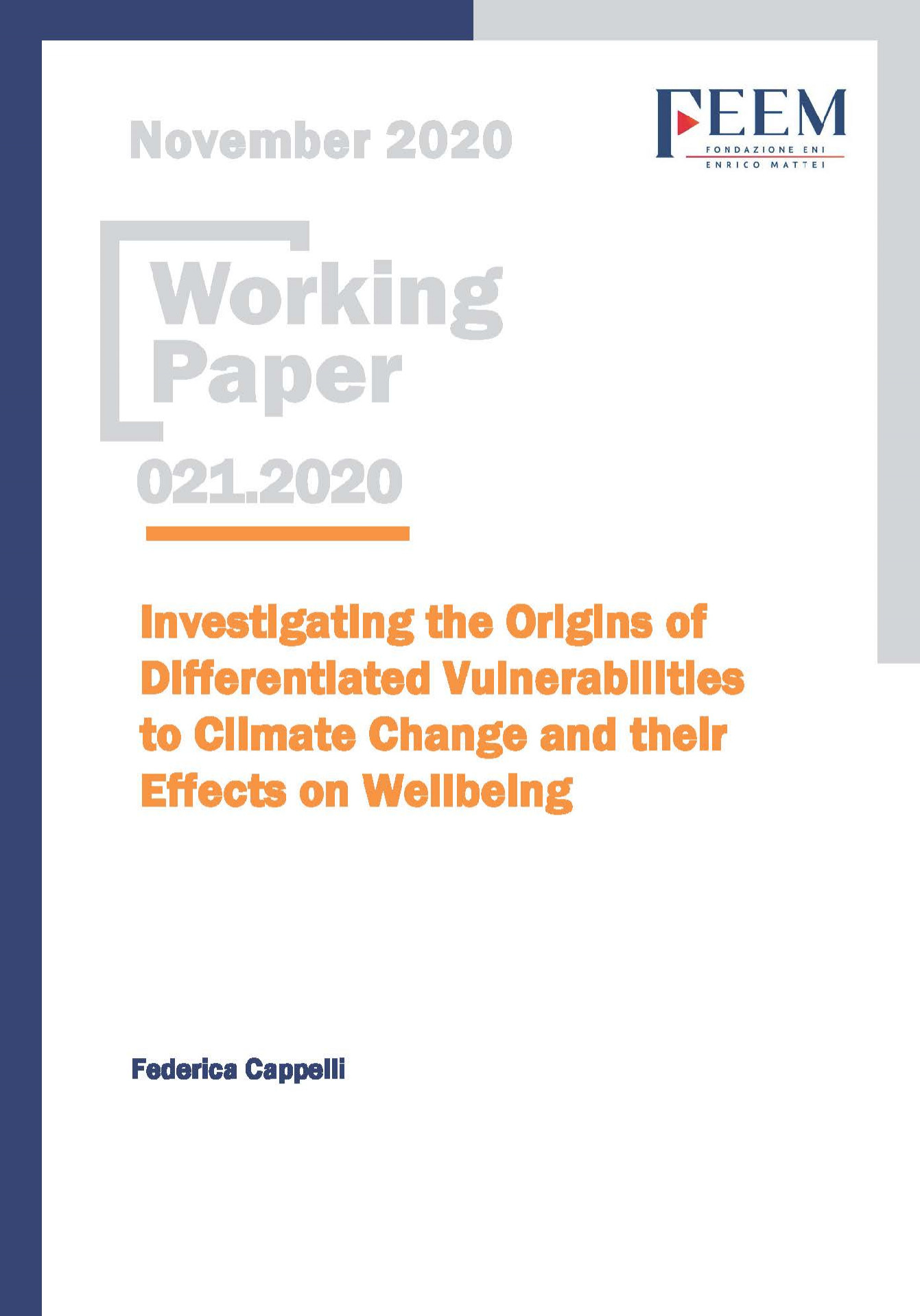Investigating the Origins of Differentiated Vulnerabilities to Climate Change and their Effects on Wellbeing

05.11.2020
Federica Cappelli (Roma Tre University)
Q54, D63, O15
Climate Change, Vulnerability, Inequality
Firms and Cities Towards Sustainability
Stefano Pareglio
The paper traces the evolution the concept of socioeconomic vulnerability to climate change has followed in the academic and scientific debate. The recent recognition of vulnerability as a social construction has shifted the focus of the analysis on the dimension of adaptive capacity, i.e. the human response to environmental stresses and climate hazards. Depending on the social and institutional factors in place in a society, this human response can either mitigate or exacerbate harm. In particular, the paper focuses on the role of both vertical and horizontal inequalities in determining differentiated vulnerabilities across individuals and population groups. Inequality in the distribution of income and relevant resources is primarily a question of access to tangible and intangible assets and capabilities that can enable individuals or population groups to prevent and cope with impacts from extreme weather events.
***
Suggested citation: Cappelli, F., (2020), ‘Investigating the Origins of the Differentiated Vulnerabilities to Climate Change and their Effects on Wellbeing’, Nota di Lavoro 21.2020, Milano, Italy: Fondazione Eni Enrico Mattei
